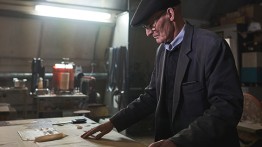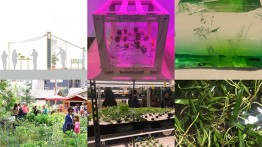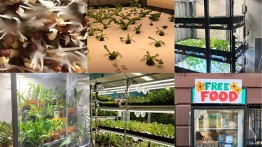Entanglements | Robert Johnson + Austin Wade Smith: Fatconomy and the material underground - consume, waste, harvest, produce
Tuesday, March 9, 2021, 12 - 2pm
This event will be conducted through Zoom. Please register in advance here. Zoom account registration is required.
Fatconomy and the material underground: consume, waste, harvest, produce. What happens if we construct a new dialogue with the ubiquitous fat and oil waste system model? Re-designing an archaic model that can contribute to a catalogue of bio-materials (fat-leathers,
fat-plastics and glycerol-based aggregates), locally sourced and built directly from our energy
needs in a post-oil future.
Through the lens of Fatconomy, we begin a conversation in how to create a new, sustainable bio-material system that invites local knowledge, crafting with waste and a new network between restaurants, the biofuel industry and designers, all with a common goal: utilizing the same waste stream within local boundaries.
The event will be moderated by Lydia Kallipoliti and Areti Markopoulou.
This event will be in conjunction with the Tallinn Architecture Biennale 2020 -Edible, Or, The Architecture of Metabolism- curated by Kallipoliti and Markopoulou.
Robert Johnson is a British designer with an MA in Social Design from Design Academy Eindhoven. During his Masters he developed a specific approach to researching system design working with film, materials and storytelling. Robert’s projects create alternative narratives. He uses fictional writing as a design research tool, creating characters and dialogue that highlight issues surrounding labour and social attitudes.
For his residency, Robert has created ‘Fatconomy’, a design system for rethinking the value of fat waste produced in commercial kitchens across London. He has proposed a waste collection service that supports local businesses and people. Guided by a human-centred design methodology and based on the principles of the circular economy, this system encourages us to work together to create an alternative sustainable future.
His installation at the Design Museum in London presented fat as a valuable resource in an urban society. A speculative documentary and an infographic installation illustrate the potential of discarded fats for the economy, material innovation and urban planning.
Austin Wade Smith is a designer, creative technologist, and researcher based in Brooklyn, New York. After studying biology and receiving an architecture degree from MIT, they are currently an adjunct faculty member at the Irwin S. Chanin School of Architecture at the Cooper Union, teaching courses on the relationship between computation and social / environmental justice. They are cofounder of the design studio Helloeverything, and have built projects internationally in USA, Europe, and Africa. They have exhibited work at the Chicago Architectural Biennale, Louisiana Museum in Denmark, and Center for Architecture New York among many others. In their practice, they explore the reciprocal relationships between spatial media, ecological networks and community resilience. They are an organizer of the art / design / technology cooperative Soft Surplus, and enjoy flying kites and cultivating orchids.
This event is free and open to the public.
View the full Spring 2021 Lectures and Events List.









